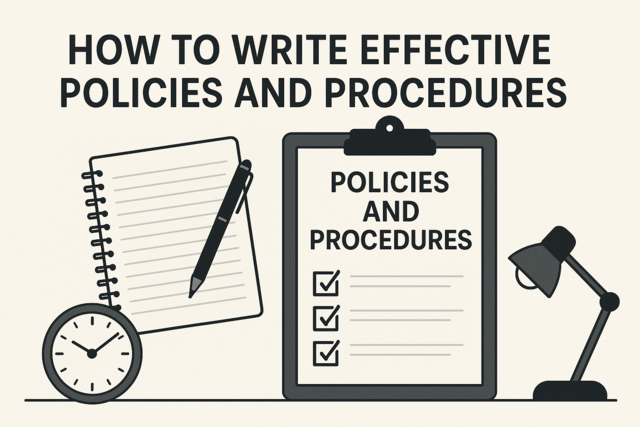The activities and interests section of your resume allows you to give the prospective employer a glimpse into who you are outside of work and school. It can be one of the most diverse sections on the entire resume, although it is still a good idea to try to focus your reader's attention on those activities and interests that are most relevant to the job or the job field.
In this article, you will learn what types of activities and interests should be included on a professional resume and using them to highlight your special skills.
- What activities and interests are relevant?
- How big should this section be?
- What should you avoid
Why Should You Include Your Activities and Interests?
Employers definitely want to hire individuals who have a great sense of the job, but most know that the best employees are well rounded individuals. Sharing some of your outside interests and activities can help give them an idea of the kind of person you are. In many cases, they will be especially pleased to note that you have outside interests that are still related to the work you do. This shows them that your profession is more than just a job for you.
The activities and interests section can also be extremely important for those who do not have a lot of job experience. College students, for example, may not have had jobs in their field of choice, but by presenting their active extra-curricular life, they can demonstrate that they are go-getters. It also helps to fill out what could otherwise be a rather sparse resume. Of course, activities that are related to the field will be of particular interest to those doing the hiring.
Career changers and military transitioners can also benefit from an activities and interest section that shows that even while they were employed in another field, they were pursuing their interest in the one to which they are now applying. For these people, as well as for the recent graduates, the activities and interests section could end up taking as much as one-third of the entire resume. For those with more industry experience, however, the section might only be a few lines long and would appear much lower on the page.
Keep in mind that it is not mandatory to include an activities and interests section. In fact, there is even controversy over whether or not a job seeker should include personal interests on a resume. Some employers appreciate it, saying that it helps to create a connection with the applicant, that it shows strong knowledge about a subject, and that it helps create a positive image before an interview. On the other hand, some employers feel that it is a waste of space. Some even feel it is a deterrent, as the employer may have a strong dislike for your interests.
Finally, consider that even if you do not want to include a full "Activities and Interests" section on your resume, you can still convey some of the information. If you have held an office in a school club, for example, you might want to include it in a "Leadership" section. If you worked on a great project for a local food bank, you could list it under "Volunteer Experience."
Activities and Interests to Include
This section of the resume is fairly subjective, so it can be hard to know exactly which activities and interests you should include. Begin with those that are the most obviously related to your field. If you belong to a professional association, for example, this is an excellent place to mention it. College students who are involved in school clubs directly related to the field they wish to enter can benefit by including that in this section, as well.
You want to include activities that have obviously "transferable" skills. These are skills that can be taken from one area of expertise in your life and applied to others. Participation in the local Toastmasters, for example, could demonstrate your comfort level with public speaking. Involvement in a sports club can show your ability to work as part of a team. Of course, you would want to mention any leadership positions held in these groups or associations, as that also conveys important information such as commitment, ability to work with others, and management skills.
When it comes to personal interests, you may want to do a little research on the company, or even the person conducting the job search. If you find that the organization has a strong giving or volunteer program, you might want to mention your involvement with a similar or the same cause.
What to Avoid
You have already been warned that some employers may not appreciate your personal interests. In those cases, this section can actually hurt your chances to be called for an interview. To remove that concern as much as possible, it may be worthwhile to omit some of your more controversial interests. This does not mean that you need to change your lifestyle, just that some of your activities are not mentioned.
Some topics that are often omitted might include religious activities and political affiliations. These are topics that can spur strong feelings of opposition, and while it is unfair for them to hinder your job opportunities, they certainly can. Age can also be a factor in being declined for an interview, so involvement in organizations like AARP might not be appropriate on your resume. Of course, if you are applying for a job where any of these affiliations can work to your advantage, you should definitely consider including them.
Bolstering Your Resume
People struggle with resumes for a number of reasons. In many cases, the job seeker just is not sure how to show him or herself in the best possible light. The goal is to make your resume as strong as possible for the employer who will be reading it. You can do this whether you are brand new to the workforce or have lots of experience and want to focus it for your field.
Objectives
- How can I make my experience more relevant?
- What if I do not have any job experience?
- How can I target my resume for better results?
When You Just Don't Have the Job Experience
If you simply do not have experience in the field, then you are going to have to find other ways to demonstrate that you are a good candidate for the job. One method is to showcase any special certifications that you have earned to become qualified to work in the field. Employers realize that everyone has to start somewhere and taking classes or completing specialized programs can go a long way in showing that you are serious about what you want to do.
You also need to keep in mind the fact that some employers are not going to expect you to have much (or any) experience. If you are a high school student applying for your first office job, for example, the hiring manager is going to be aware that you do not have a long history of working for major corporations. The same may be said of a college internship or even many entry level jobs after technical school or university.
In these types of cases, you want to do your best to beef up the non-job-related sections of your resume. Find ways to show that you are a good team member (sports, for example) or that you are a leader (student government might be an option). Make a point to mention extracurricular activities that can demonstrate not only that you have outside interests, but also that you had the commitment necessary to attend regular meetings.
Finally, remember that not all job experience has to be paid. If you have held volunteer positions, then you often can use those to add some weight and credibility to your resume. If you are applying for an assistant manager position at your current employer, for example, then it can be very helpful to note that you have been the lead docent at the local art museum for the last year. You will be able to demonstrate that you have already mastered many of the skills that you would need for the assistant manager job, such as scheduling, coordinating, and working with different personalities.
Making the Most of the Job Experience You Do Have
There are several reasons that you may feel your job experience is not exceptional enough for today's job market. Rather than spending too much time worrying about what you do not have to offer, focus your attention on what you can bring to an employer. Some concerns might include the following examples.
- Job hopping (lots of jobs over a short period).
- Little or no job experience.
- Changing careers (little experience in the right field).
- No formal training or higher education.
One useful method for doing this is to choose the right type of resume for your background. If you have a history of job hopping, for example, then a chronological resume will draw extra attention to that because the dates of employment are prominently listed. In this case, a functional resume might be your best bet. This may also be the right choice if you are on the opposite end of the scale and you have too few jobs instead of too many. Instead of focusing on your lack of actual jobs, you will want to draw the employer's attention to your skills and abilities.
Another important idea to keep in mind is that you have complete control over what is included in your resume. Because there are so many possible sections that can be included, no one will have them all. You are able to pick and choose those that make the most sense for your needs. Therefore, if you do not have a higher education degree, you can avoid drawing attention to the fact by simply omitting the education section. Instead, perhaps you will put more effort into the activities and special interests sections to demonstrate that you are passionate about your field.
If you do have experience in the field, then be sure to highlight this. Perhaps you have held a closely related position for several years. Make sure that your resume puts this fact on display. One method for doing so is to place your job history near the top of the resume so that employers are sure to see your relevant experience right away. You can do this with any of the sections of your resume that you feel are particularly strong.
Honesty Is the Best Policy
It can be tempting to exaggerate when writing a resume. In fact, it can be tempting to flat out lie to make you look better. This is never a good idea, however. It can get you into trouble in a few different ways. First, if you lie to say you have done something that you have not done, and then you are likely to struggle once you get a job that requires those skills. If you say you have bookkeeping experience but then cannot balance a ledger sheet, you are not going to be very good at your new job, and you are probably going to be fired.
Speaking of being fired, most employers will not hesitate to fire you if they discover that you have misrepresented yourself on your resume. Understandably, you want to bolster your resume by presenting yourself in the best way possible, but you never want to misrepresent your past or your skills. There is nothing wrong with being proud of your accomplishments and working to highlight them, just be sure that you are doing so in an honest and ethical manner.
Polishing Your Resume
As you research resume writing, you will discover that there is more information out there than one is capable of using. This section takes some of the most useful advice and compiles it for you in once place so that you can be sure you have it easily accessible when you actually sit down to put your resume together.
In this section, you will learn the best tips for creating a resume that is noticed.
- How do you tailor your resume?
- What makes a resume really stand out?
- What should you avoid?
Tailoring Your Resume
One of the biggest mistakes that job seekers make is to create a decent resume for their particular field and then blast it out to dozens of potential employers just as it is. While you may have a resume that is clear, clean, and concise, it is not likely to stand out if it has not been tailored to the particular job or employer that you want. Tailoring your resume can be a rather time intensive process, but you will find that it goes more quickly as you get used to it. The best part, though, is that you will almost certainly be invited to more interviews than you would be otherwise.
There are several things you can do to tailor your resume, but the easiest is to look closely at the job advertisement and try to mirror the language. If the job ad tells you that a company is looking for someone to manage "accounts receivable," and your resume includes "billing," then it might be worthwhile to change the wording of that skill to use the same terminology as in the advertisement. You can take this a step further by looking up the company's website and mirroring the terminology on your resume to match that of the organization.
You can also work to tailor your resume by researching the company to learn more about your potential employer. If they have a strong volunteer or giving program, for example, then you may want to consider really highlighting that portion of your own resume. If their site talks a lot about employee loyalty and you have a long history with each of your previous employers, this may be something that you want to emphasize by using a chronological resume. You may even be able to find a current or former employee online who would be willing to give you a few pointers that will help tailor your resume.
Making Your Resume Stand Out
Using a good quality paper, for example, is something that will make your resume look more professional than others that are being received. Some other examples to recall include the following.
- Use action words.
- Use a consistent style across the sections of your resume.
- Choose the type of resume that works best for your needs.
- Include relevant information and leave out the rest.
- Keep the document short, usually one page.
- Use numbers to show your successes.
To create the best possible image, use a good printer and make sure the ink cartridge is not smudging or running low. You can print them out one at a time as you tailor them, but you might want to have a couple of extra "all purpose" resumes in a folder in case you run into a situation where one might be needed. You can update your resume regularly by not printing too many. It is okay to remove your older history if it is no longer relevant or if you feel it is inappropriate. Even if you are not job hunting now, it is always a good idea to update your resume with the most recent information, just in case.
If you really want your resume to stand out, you might even consider getting professional help. There are pros who do resume writing for pay, for example. In addition, many colleges and universities have career centers that assist students in creating good resumes, practicing interviewing skills, and finding job listings.
Things to Avoid
While you want your resume to stand out, you want it to be for good reasons. Unfortunately, some mistakes can make you stand out for bad reasons also. One of the quickest ways to ensure that your resume will end up in the garbage is to send it in without proofreading it. Misspellings, typographical errors, and grammar mistakes can all make you look unprofessional. In addition to reading over your own resume, have one or two others look it over, as well. Once you have spent so much time creating and perfecting it, you can lose some perspective, and typos can slip by. Having someone else review it can help keep you from being passed over for an interview.
You may have noticed that resumes often include the phrase, "References available upon request." In most cases, this is not only unnecessary, it is also a bit of a nuisance. If the employer is interested in seeing your references, he or she does not want to have to ask you for them and then wait. Instead, consider putting together a list of references with their contact information and including it with your resume and cover letter. Be sure, however, that the references are job related (you could have separate sections for job references and personal references), and that you have cleared it with the reference in advance. You certainly do not want your potential employer to call one of your references only to get a bad report on you.

























